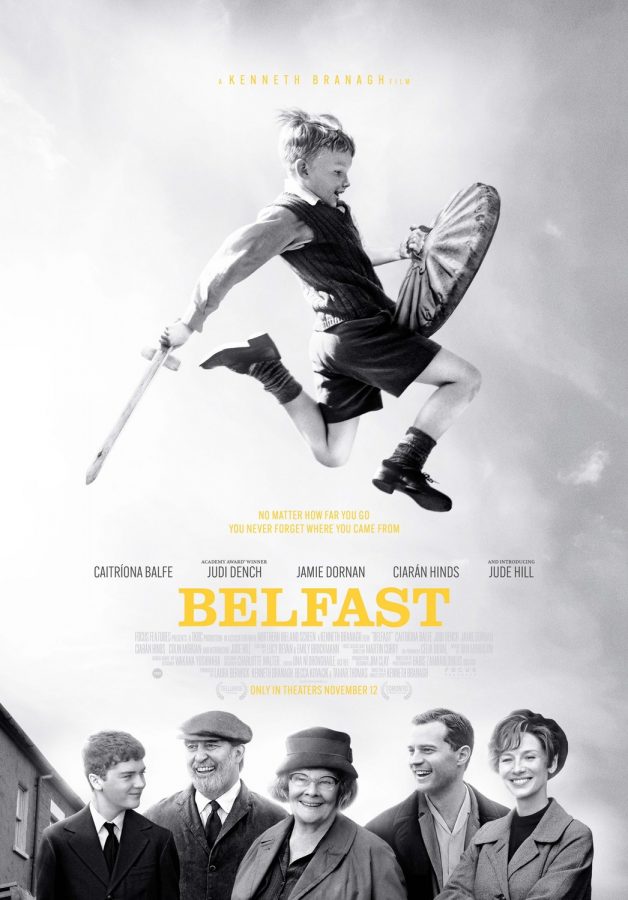Civil War and Family
An honest review of the new film Belfast
Promotional poster for the new film Belfast starring Jude Hill, Caitriona Balfe, and Jamie Dornan.
Creating an uplifting movie that is truly centered around family with the backdrop of a civil war is not an easy feat to accomplish. Kenneth Branagh manages to accomplish it with ease in his new film Belfast. The semi-autobiographical film hit theaters last Friday and is 100% a movie that you must see.
The center of our film is the character called Buddy, played by young actor Jude Hill, and the rest of his family Ma (Caitriona Balfe), Pa (Jamie Dornan), Pop (Ciaran Hinds), and Granny (Judi Dench). At the film’s heart is the family that becomes an anchoring point in a film that touches on a wide variety of topics. Each of the actors listed above gives an impressive performance that are sure to be decorated with awards as they move forward.
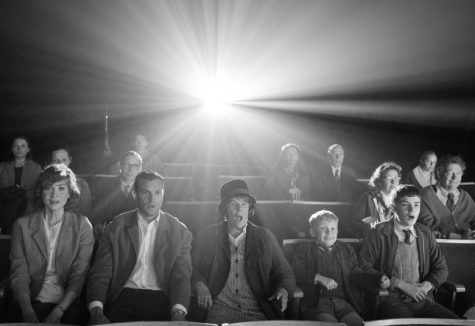
Set amongst the backdrop of The Troubles, the film explores themes of childhood and parenting while also exploring deeper cultural reverberations from civil war, unemployment, and internal turbulence . Witnessing the conflict through the eyes of a young child makes the heavy topic more palatable and also makes you understand truly how traumatic these experiences would be. The film opens with a distressing scene that shows the Catholic families on Buddy’s street being attacked by Protestant rioters. There is violence and explosions and right in the middle of it is Buddy and his family who hide under their kitchen table.
Despite these heavier themes, Branagh is able to lace a story of family and humor throughout. Although jokes and subject matter are targeted towards older audiences, Branagh has created a film that should be a must watch for all generations (with the exception of language for small children). Placing a singular face (Buddy) to a large conflict allows the story to become ingrained in the memory of those who see it. It is hard to forget Buddy’s face as the car explodes in his street, the confusion in his voice is meant to be disturbing. Branagh showcases what war truly is, even if he disguises it behind the form of a child. That is a lesson that all should learn, and the personal nature of the film is evident in Branagh’s directorial style and his storytelling.
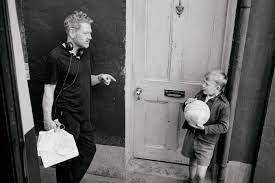
A storyline that is ever present throughout is Buddy’s crush on a fellow classmate. Although it is one of the lighter aspects of the film it continues to elevate the complex storytelling throughout. When eventually Buddy leaves Northern Ireland and has to leave his classmate behind he is saddened; Branagh seamlessly added this storyline throughout to showcase the separation that conflict often results in.
Further, Buddy asks his father if he would ever be able to marry said classmate since she is Catholic. Just like that, Branagh had added another immense adult level issue, but he had done it through the eyes of a child. How do we see each other? How do prejudices affect our children? How does growing up in conflict lead to resentment? Those and many other questions are all posed by Branagh in subtle ways throughout the film.
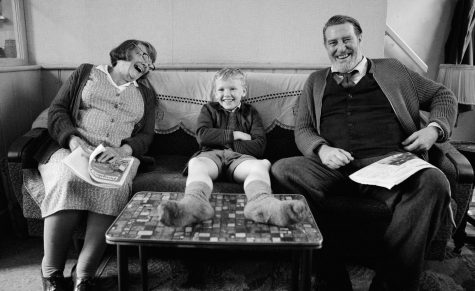
Three performances are of particular note from the cast: Jude Hill, Caitriona Balfe, and Ciaran Hinds. The first delivered a stunning acting debut with his character Buddy. His ability to deliver his lines and portray emotion was seamlessly woven into the fabric of the adult’s performances. He manages to move the film along with him as we watch his character encounter incredible emotional challenges. This is no easy task and even the most qualified actors could fail at this in a superb film like Belfast. Caitriona Balfe, who plays Ma, also delivered a stunning performance. The actress, who has gained global recognition from her role in the TV show Outlander, gave an emotional and raw turn as Buddy’s mom. Her care for the children is genuine, and in many ways the film is a take on parenting. Ma’s struggles do not diminish her fiery spirit, or her love for her boys, but rather it enhances them. Balfe’s portrayal of her is pure perfection and she is certain to receive love during the awards season (she is seen as a frontrunner for the Oscar for Best Supporting Actress.) Finally we reach Ciaran Hinds who is at his best as Pop. Buddy’s grandpa is a strong source of comic relief throughout the film and Hinds’ ability to perform with humor throughout scenes that are filled with grief, turmoil, and despair makes his performance extremely noteworthy. Dench, as always, is perfection (disregarding Cats) and she does not falter in this film.
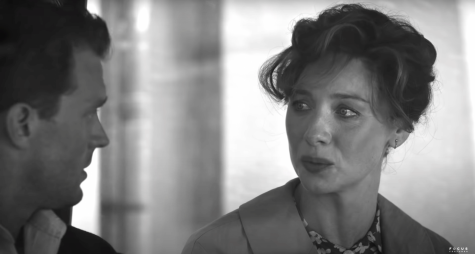
Finally we have to talk about some of the technical aspects of the film. The music throughout is delightful, especially Dornan singing Everlasting Love near the end of the film. The soundtrack is palatable by all audiences and will have you either sinking into your seats with sadness, or on the edge with pure happiness. The cinematography of the film is also exceptional. Shot in black and white it adds another layer of complexity and depth to an already deep film. It highlights the actors’ faces especially in scenes where Balfe’s character is extremely emotional. Lastly is costumes, they are accurate to the time period and done extremely well. They, like the aspects listed above, bring the full film under one umbrella and make it a cohesive production.
In the end, Belfast lives up to its expectations. Branagh is at his best with the directing and his personal connection to the story is evident. The acting is superb, the cinematography is sublime, the music is exalted, the costumes are excellent, and most importantly the story is outstanding. A deeply personal tale of growing up in conflict is made universal in this film, and this is most likely why the audiences who are seeing it are walking away refreshed. They are recognizing the unjustness in our world, but also recognizing the hope that young, exuberant, children like Buddy bring to it. After all, a young Kenneth Branagh grew up during this turbulent time and as a result he brought us this awe-inspiring and uplifting film.


